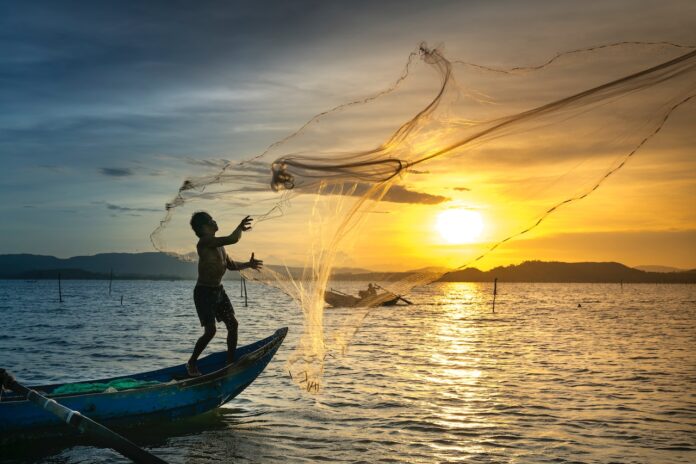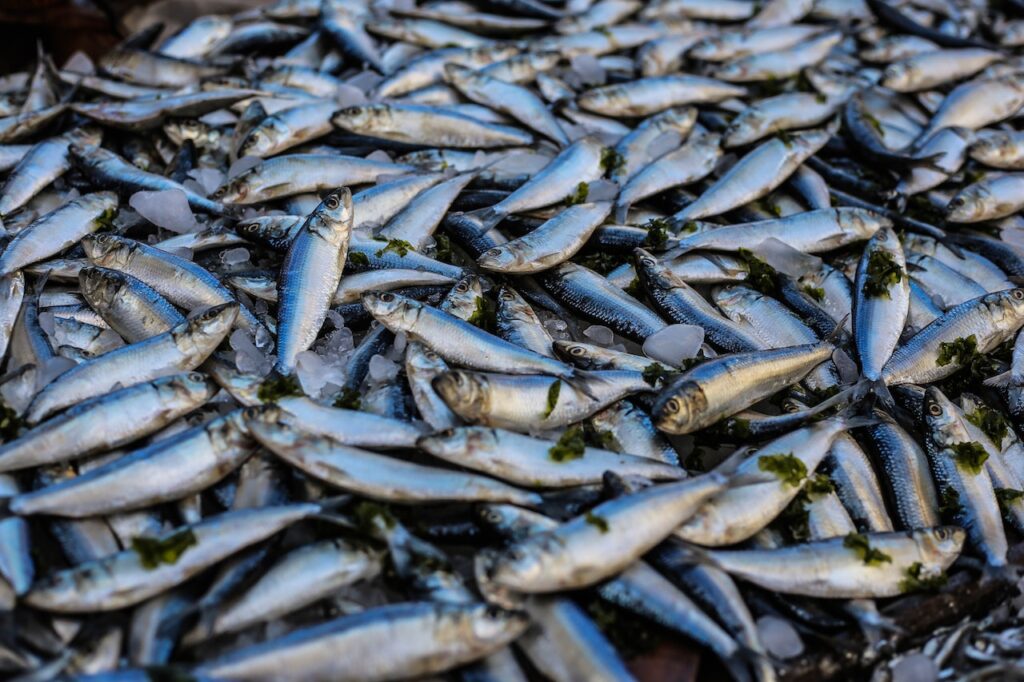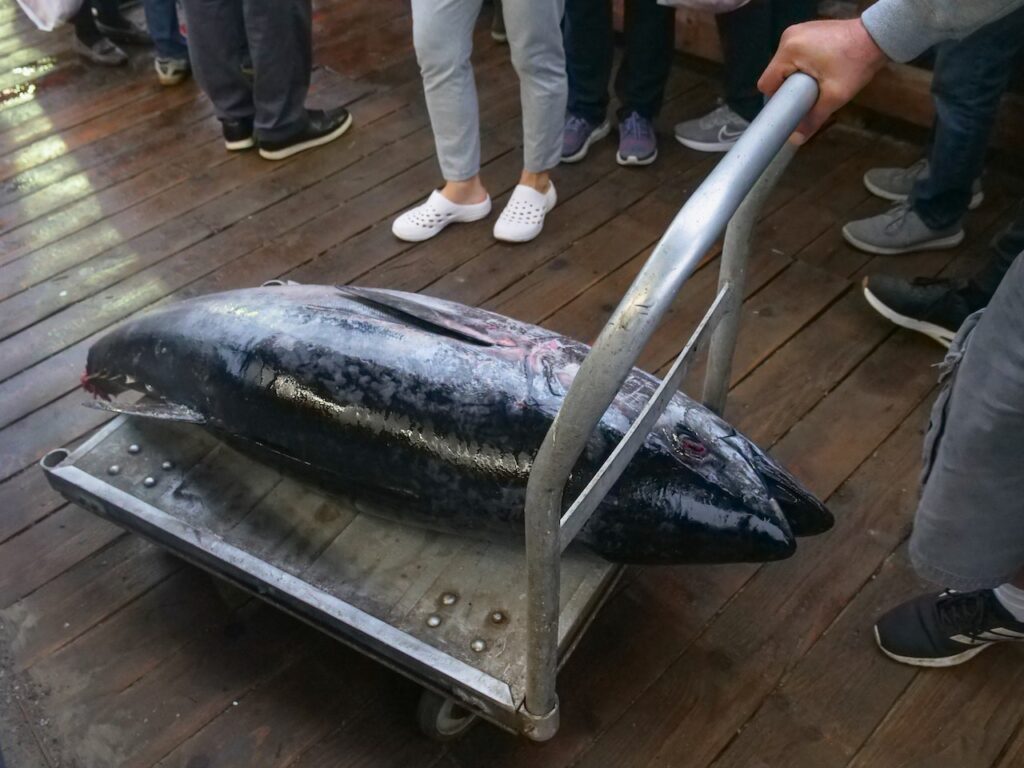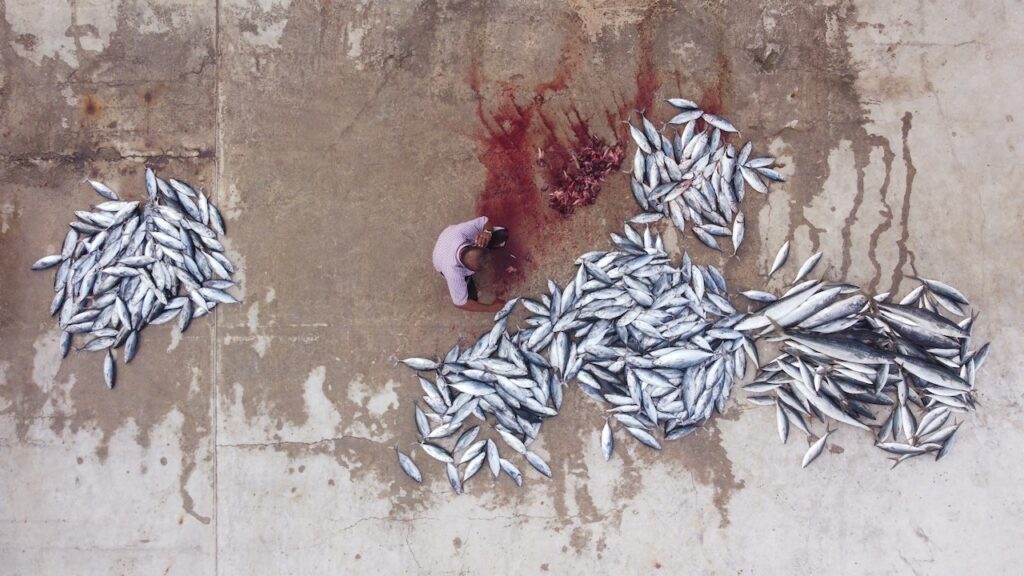
Fish are one of the most important mammals on Earth together with Mosquitoes…..
Wait, wait – this came out wrong.
As (hopefully) everyone knows, fish are not mammals. Fish are not mammals for the following reasons: they can’t breathe air, they are cold-blooded, and they don’t nurse their babies.
Having said that, still there is a lot of confusion between people on the topic of – which water animals are actually fish, and which are mammals. This confusion is still present to these days (from time to time), because many years ago, even scientists thought those animals were fish.
I am talking of course about whales, dolphins, seals, sea lions and many other so called marine mammals.
Therefore, to come back to the initial question of this article – “What would happen if we stopped fishing?”, I would like to preface that this article will talk about all animals that we catch in the sea or other waters. So, basically everything that we consume and that comes from different waters on this planet including fish, marine mammals, shrimps, crabs, scallops, eels, octopuses and many others.
Related:
Numbers Numbers

First let’s start with some numbers. Scientists approximate that around 3.5 trillion fish live in all the oceans combined. Now, people tend to think that majority of fish are in our seas and in oceans. But that is not correct. Far from it.
Even though lakes and rivers cover less than 3% of Earth’s surface, more than 80% of Earth’s species are contained there.
Yes, you read that right – big majority of water species are in our so called freshwaters, so rivers, lakes, swamps, ponds et cetera.
On the other hand majority of big industrial fishing is happening in our oceans and seas around the world.
Having said that, let’s also explore pure numbers about fishing with following questions:
- How many sea animals do we catch in a year?
- What animals are caught the most?
- Which water animals are in danger (because of humans) and which are thriving in numbers?
Before answering the first of those question it is important to introduce new term to the reader and that is bycatch.
Cambridge dictionary defines bycatch as:
“Fish or other sea creatures that are caught unintentionally by people who are trying to catch other types of fish.”
And you will be amazed how big is this number. Namely, around 40% of fish caught worldwide is unintentionally caught and is partially thrown back into the sea, either dying or already dead. If we go into even more details it gets even scarier as by some approximations as many as 50 million sharks and over 300 000 whales and dolphins are killed as a result of it.
Now this is really a substantial number. I am sure we can all agree on that.
And so, with that number, let’s return to approximate number of overall catch of sea (water) animals in the world.
By some estimations we (people) caught between 0.79 and 2.3 trillion fish (790,000,000,000 to 2,300,000,000,000) from the wild globally each year for 2007-2016.
If you compared that number with overall number of fish in all oceans then it will become obvious that people are overfishing. At beginning of this article, I mentioned that there are around 3.5 trillion fish in all oceans and each year we catch between 0.8 and 2.3 trillion fish.
Of course, fish reproduce relatively quickly, but I think we still have a problem of overfishing and exploitation of water animals.
Endangered Aquatic Animals

With that we’re arriving to the question of which type of water animal is caught the most and which one is eaten the most.
According to UN report, tuna is the most consumed fish in the world. And for the first part of the question, it is actually almost impossible to find accurate data but if we use logic then we could probably agree that sardines or similar small fish are caught the most.
That leads us to the question of most endangered animals in our oceans, seas and fresh waters.
Introducing human greed to answer this question.
Namely, one of most endangered species because of overfishing is Atlantic Bluefin Tuna. There are several reasons to that but one of main is price of that specific tuna.
“Bluefin Tuna can be staggeringly expensive, depending on where it was caught, and where you buy it. It’s reported that the finest Bluefin Tuna comes from Japan, and can be valued at around $200 per pound. In 2019, a perfect and giant 600-pound Bluefin sold for $3 million in Tokyo.“
And exactly there stands the reason why it is endangered. Because of money. Because of human greed.
There are many other endangered species also, some because ruined habitat but mostly because of overfishing.
Namely, there are more than 1616 endangered species of fish in the world according to the International Union for the Conservation of Nature (IUCN).
Stopping Fishing and Potential Consequences

So now with all this data, we are finally coming to the initial question of this article. What would happen if we stopped fishing? Perhaps for a month, or for a year.
Let’s dive deeper.
The Sunken Billions Revisited book suggests that by reducing fishing effort by 44 percent, the biomass of fish would theoretically increase by a factor of 2.7 and annual harvests would increase by 13 percent.
In translation that means that if we reduce (not stop) fishing, animals would grow bigger thus increasing fish stocks. Larger fish = more value.
But what if fishing completely stopped? If it was banned around the world?
Let’s first discuss this scenario from human perspective.
Around 50 to 60 million people earn their living directly by catching, farming or growing seafood animals. This would then mean, that those people would have hard time in providing for their own families because of lack of money.
Another potential consequence could happen in those areas of the world where agriculture is not present or developed. In many such areas in Southeast Asia, they would have trouble finding needed proteins for their nurture.
Additionally, worldwide fish accounts for a lot of the world’s need for food. If we stopped fishing completely, the global food chain would be broken for years.
Ok, so this is from human perspective.
But, what about fish (and other water animals), solely from their perspective. While it’s hard to predict exactly what would happen, we can see some examples already in areas where fishing is banned because of overfishing and risk of extermination of some species.
In simple terms, most areas would completely recover. Fish and other water animals would strive in their ecosystems.
With that said, we could ask ourselves one additional question.
With all fishing stopped – could it happen that there are too many fish and water animals in the world so that they consequently put other ecosystems in disbalance.
Most likely not. I mean, water animals lived long before us and they were fine. Perhaps some animals would be more endangered because of more predator fish striving, but most likely balance would be established soon.
For the reason that imbalance in this world and in our nature is mostly (if not entirely) caused by humans.
Note: If you enjoyed this article you might also enjoy following articles on topic of “What would happen if”:
- What Would Happen If Everyone Stopped Spending Money?
- What If Everyone Stopped Paying Taxes?
- What Would Happen If The Earth Stopped Spinning?
- What would happen if water disappeared on Earth?
- What would happen if lying never existed?
- What would happen if gravity suddenly disappeared?
- What would happen if everyone stopped having children?
- What would happen if mosquitoes went extinct?
- …and many more.



























